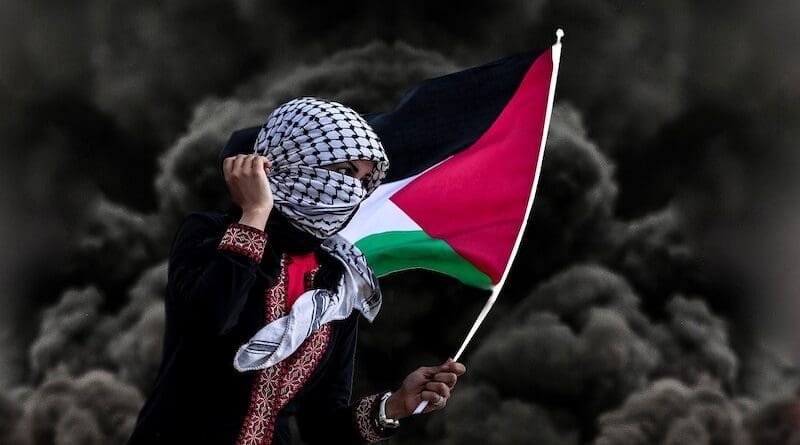Hamas Accepts Cease-Fire Proposal, But Israel Has Not Commented
By VOA
Hamas says it has accepted a cease-fire proposal to halt its war with Israel.
The Palestinian militant group issued a statement Monday saying its leader, Ismail Haniyeh, delivered the news in a phone call with Qatar’s prime minister and Egypt’s intelligence minister.
Negotiators in Cairo have been trying to bring about a temporary halt in the fighting and the release of hostages still held by Hamas in Gaza.
There has been no comment from Israel or details of what Hamas agreed to. An Israeli official told the Reuters news agency that Hamas appears to have agreed to a “softened” version of an Egyptian proposal that includes “far-reaching” conclusions that Israel could not accept.
The official, speaking on the condition of anonymity, said, “This would appear to be a ruse intended to make Israel look like the side refusing a deal.”
The U.S. State Department said it is reviewing the Hamas response.
The Hamas announcement came hours after Israel said about 100,000 people in eastern parts of Rafah should evacuate their homes and go to an expanded humanitarian area that now includes Khan Younis, in a move that comes ahead of a planned Israeli offensive in Rafah.
An Israel Defense Forces spokesperson, posting on social media in Arabic, said the Israeli military will act forcefully against terrorist organizations in Rafah, and that anyone who is in the area will be putting their lives at risk.
Israel is preparing a “limited scope operation” in Rafah, a military spokesperson said, and an estimated 100,000 people were being asked to leave the evacuation area.
Israel has previously issued such warnings amid its campaign to eliminate the Hamas militant group in the Gaza Strip. Many of the Palestinians in Rafah traveled there seeking shelter after Israel warned them to flee other parts of Gaza.
Maps provided by the Israeli military previously showed a humanitarian zone along the Gaza coast west of Khan Younis. Monday’s announcement expanded that area both to the north along the coast, as well as east to include Khan Younis.
Israel has said an offensive in Rafah is necessary to defeat Hamas, while the United States, United Nations and others have warned of a potential humanitarian catastrophe if Israel carries out a large-scale attack in the area where more than half of Gaza’s population is sheltering.
President Joe Biden spoke by phone with Israeli Prime Minister Benjamin Netanyahu on Monday.
A White House statement said Biden “reiterated his clear position on Rafah.” It also said that Netanyahu agreed “to ensure the Kerem Shalom crossing is open for humanitarian assistance for those in need.”
World Health Organization Director-General Tedros Adhanom Ghebreyesus posted Monday on the social media platform X, “A full military incursion into Rafah will plunge the crisis into unprecedented levels of humanitarian need. A ceasefire is urgently needed for the sake of humanity.”
Reuters quoted a senior Hamas official calling the evacuation order for Rafah a “dangerous escalation that will have consequences.”
U.S. Defense Secretary Lloyd Austin highlighted the issue again in a Sunday phone call with Israel Defense Minister Yoav Gallant.
A Pentagon statement said Austin “reaffirmed his commitment to the unconditional return of all hostages and stressed the need for any potential Israeli military operation in Rafah to include a credible plan to evacuate Palestinian civilians and maintain the flow of humanitarian aid.”
Israel’s Defense Ministry said Gallant emphasized to Austin that military action was required in Rafah, and that there was no alternative.
The U.N. relief agency for Palestinians, UNRWA, said on social media Monday that an Israeli operation in Rafah would bring “more civilian suffering and deaths,” and “devastating” consequences for more than 1 million people sheltering there.
UNRWA said it will “maintain a presence in Rafah as long as possible and will continue providing lifesaving aid to people.”
The Israel-Hamas war was triggered by the October 7 Hamas attack on southern Israel that killed 1,200 people and led to the capture of about 250 hostages, according to Israeli officials. About 100 of the hostages were freed in a weeklong truce in late November.
Israel’s ensuring counteroffensive in Gaza has killed more than 34,600 Palestinians, about two-thirds of them women and children, according to the Gaza Health Ministry.
Cease-fire negotiations
Negotiators have been trying to find a breakthrough in cease-fire talks aimed at bringing a temporary halt in fighting and the release of hostages still held by Hamas in Gaza.
After no apparent progress was reported Sunday in talks with Qatari and Egyptian mediators, the Hamas delegation left Cairo to consult with its leadership and said it planned to return to Cairo on Tuesday.
Israeli officials did not send negotiators to Cairo to take part in indirect diplomacy.
Haniyeh said Sunday that the group wants a comprehensive cease-fire that would end Israeli “aggression” and guarantee Israel’s withdrawal from Gaza, while Hamas frees about 100 hostages in exchange for hundreds of prisoners jailed by Israel.
Sunday in Jerusalem, Netanyahu rejected any end to the fighting that would leave Hamas in control of Gaza, the narrow territory along the Mediterranean Sea, and pose a continuing threat to the Jewish state.
Netanyahu has pushed for a six-week cease-fire and the exchange of some hostages for jailed Palestinians.
Egyptian sources said U.S. Central Intelligence Agency Director William Burns, who has also been involved in previous truce talks, arrived in Cairo on Friday. The United States — which, like other Western powers and Israel, brands Hamas a terrorist group — has urged Hamas to enter a deal.

